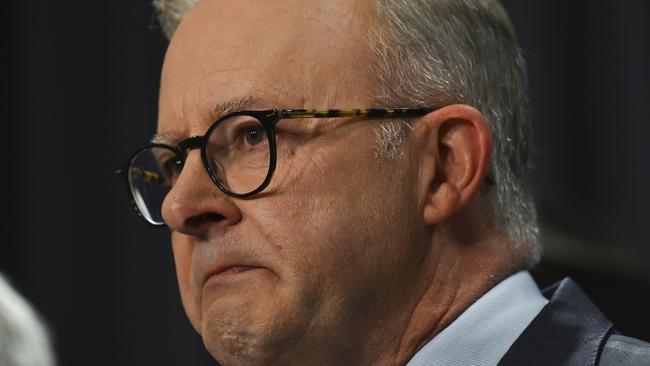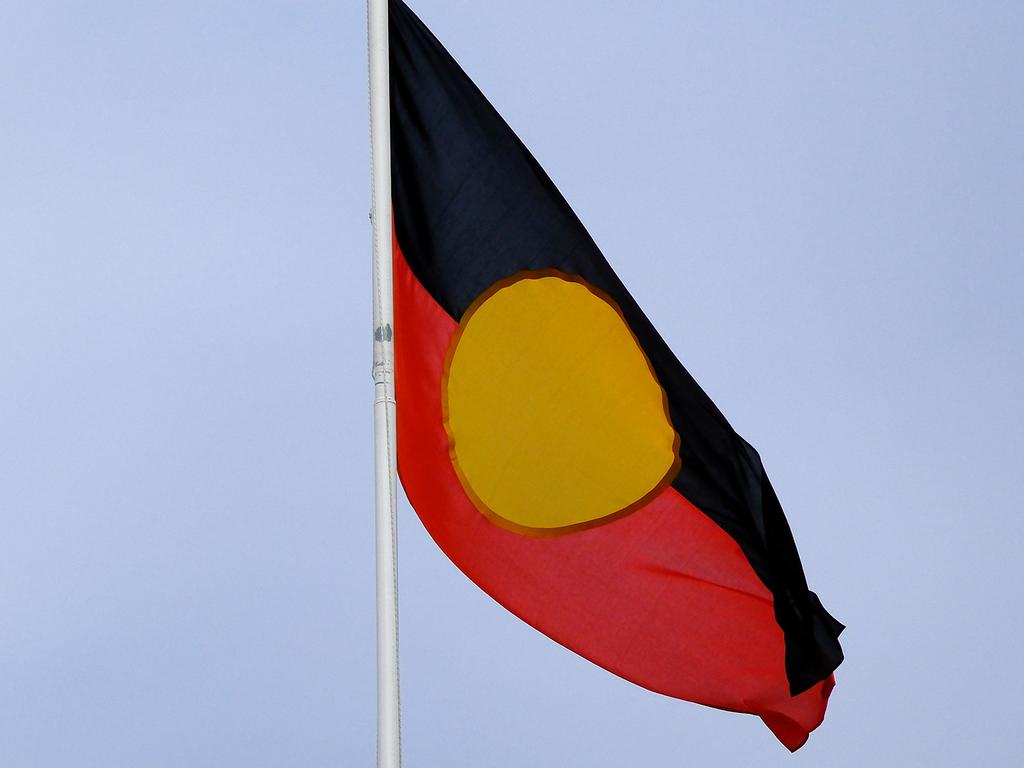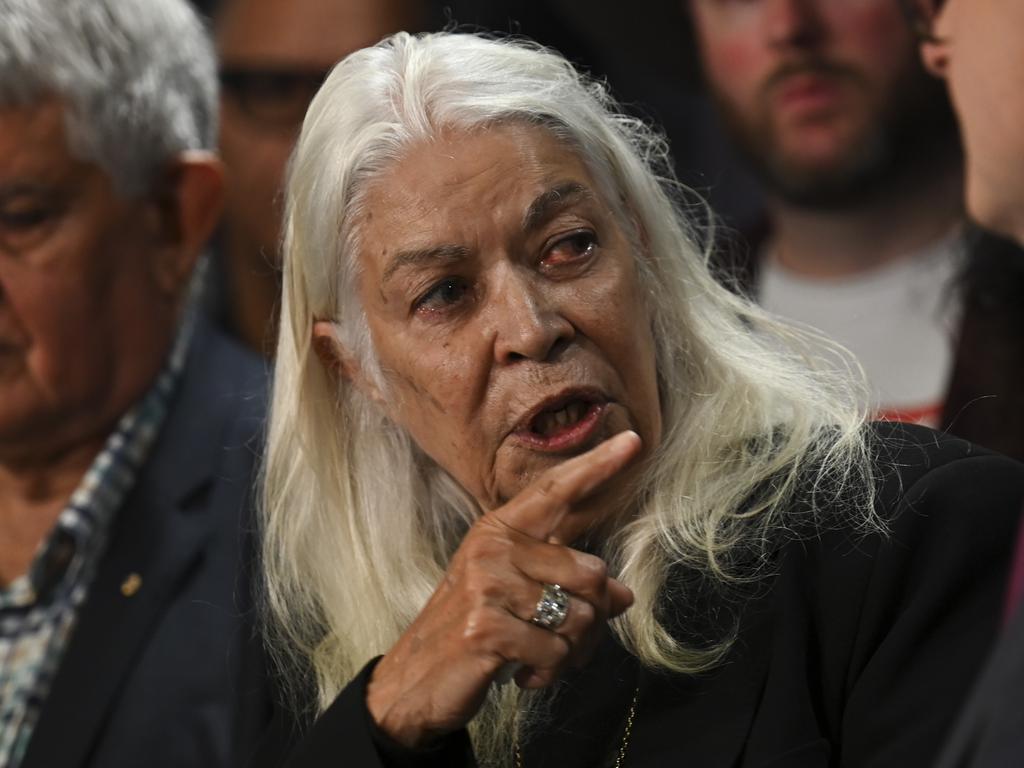
A tearful Prime Minister has appealed in a choking voice for Australians to “own” the change which he has proposed and declared there are no circumstances in which the referendum will not be put to the people.
“Not to put the vote is to concede defeat,” he said as he announced the wording and principles of the Indigenous voice to parliament and government referendum.
Albanese’s appeal is deeply emotional and he has given the Indigenous leaders all they have asked for – indeed more than the Uluṟu statement sought.
Albanese has opted for a more difficult referendum question to sell in favour of facing a political split in the Indigenous leadership which fits his party political reading that Peter Dutton will be blamed if the referendum fails.
But in so doing Albanese, while conceding there will be differences of opinion, has “lit a fire” for those who are concerned a constitutional right will impose another layer of bureaucracy on government decision making and the potential for legal challenges on all decisions being made by public servants.
The greatest fear of those concerned about the impact of the constitutional power to the voice is that the voice will be able to intervene in all commonwealth public service decisions and make day-to day work impractical and open to constant legal challenge.
Not only has Albanese ensured the voice will have this power of intervention he has thrown out the government’s own recommendation to try and limit the legal risks but he has also enhanced the power allowing the voice to act “proactively” and seek “early advice” from public servants as they develop policy.
Even proponents for the Yes vote have expressed serious concerns about this risk – a risk former justice Robert French acknowledged as genuine – wanted these powers limited to avoid the prospect of a New Zealand-style cogovernance developing based on the constitutional right which cannot be removed by Parliament.
Albanese’s genuine belief in offering the voice the maximum impact on the making of government decisions at all levels cannot remove the equally genuine concerns - concerns the government’s own Solicitor-General and Attorney-General had about the impact on the public service.
The Albanese response is that the working group had eminent legal advice as well and he obviously accepted that over his own. There was a concession to these concerns by limiting the voice’s right to the commonwealth government and excluding the state and local governments.
This impact on the working of government is the crux of the future debate – the extent of the intervention of the voice into executive government, it’s timing and scope. It’s not the straw arguments being put up about not having a veto or funding or the emotional appeal to be generous.







Anthony Albanese has committed his government to going “all in” on the Indigenous voice to parliament and executive government, given the Indigenous working group all it has asked and rejected the Solicitor-General’s advice to limit the power of the voice over commonwealth government and public servants.